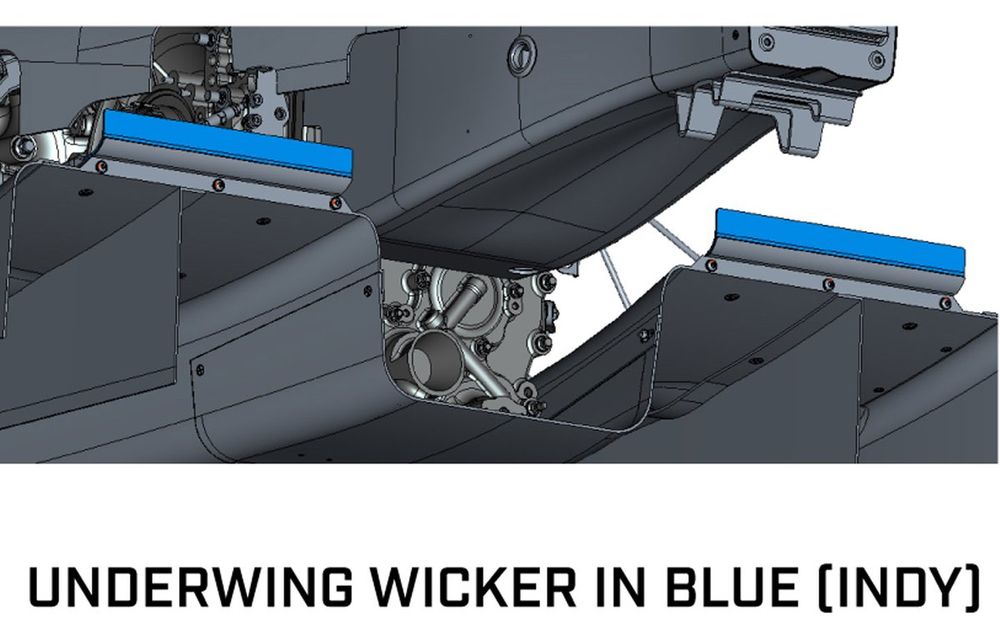
In an effort to enhance the raceability of its Dallara chassis in the aeroscreen era, IndyCar allowed teams the chance to add 10% more downforce into their cars via a raft of aerodynamic options.
The racing at Texas in April earned rave reviews, as the increased aerodynamic loads allowed the cars to run harder for longer. These included additional bargeboards and, for Indianapolis, additional underwing wickers and a new rear wing main plane pillar.

But around the narrower and flatter Indianapolis Motor Speedway during race simulations in this week's practice sessions, it seems the requirement to favour less drag over better handling is creating something akin to a 'DRS train' in Formula 1, where cars run nose-to-tail behind the leaders.
"The aero bits seem to have done nothing for racing." O'Ward told NBC Peacock. "Obviously it's not ideal when you're running 10th or 11th in a pack, or even when you're sixth or seventh, you can't do anything.
"Only the first two lead cars can be overtaking each other and maybe a third car can come join the party. But, other than that, it's pretty much a follow-the-leader situation.
"The guys in front are getting towed, so you're not able to suck up to 'em like you are sucking up to the lead car.
"I'd have loved to have seen just a step in that, because if you've got a solid car, or even the best car, if you're stuck in a train, it doesn't matter, you can't do anything. No change since 2021 and '22."
Ed Carpenter Racing's Conor Daly also admitted that running mired in traffic "is still a challenge" around Indy's 2.5-mile oval.
"If you're deep in the pack, it didn't matter what car it was, it was rare to see people making progress unless people were letting people by," he said. "The first two cars, boy, it looked like they were having a heck of a race."

Meyer Shank Racing's Simon Pagenaud pointed out that at least the new parts gave teams an option to run more downforce in the cars, if they chose to.
"I feel like we have a good range of downforce level, parts that we can use to make the car behave a certain way," he said. "I think IndyCar allowed us to have a bigger wrench, and I feel like it's better for racing.
"But it doesn't stop the fact that when you are fifth in line, like Conor was saying, it's still very difficult. The car ahead of you is still drafting, going the same speed as you. Even if you're good there, it doesn't mean you're going to pass.
"It's still going to be first, second trading [positions] every single lap, similar [to before]. But we have a better range to work with, and that's enjoyable."







